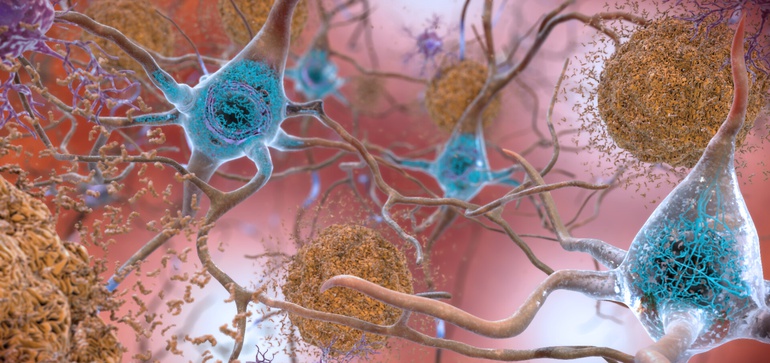
Roche is expanding clinical testing of its experimental Alzheimer's disease drug gantenerumab, announcing Thursday the start of a late-stage trial in people with biological signs of the disease but no symptoms. The study will test whether treatment can slow cognitive decline over four years.
The trial will enroll people who have evidence that a sticky protein called amyloid beta, long thought to cause Alzheimer's, has begun accumulating in their brains. Most studies of drugs like gantenerumab have focused on people who have developed mild Alzheimer's symptoms.
Roche's announcement comes as rival drugmaker Biogen struggles to sell its new Alzheimer's drug Aduhelm, which was controversially approved in the U.S. last June. Results from two gantenerumab trials that are nearing their conclusion could allow Roche to soon seek Food and Drug Administration clearance.

Roche's decision to launch another expensive, late-stage study of gantenerumab is another sign that Aduhelm's approval has given other drugmakers reason to further invest in Alzheimer's disease research.
Seven years ago, Roche stopped a Phase 3 trial of gantenerumab in Alzheimer's patients with the earliest signs of memory impairment after data showed treatment was unlikely to benefit patients. In 2020, another trial showed the drug didn't help pre-symptomatic people who have genetic mutations that lead to early onset and fast progression of Alzheimer's.
Yet researchers have persisted in testing drugs that target amyloid beta, which accumulates in deposits in patients' brains and is still believed to be the chief cause of Alzheimer's. Following earlier failures with a drug called solanezumab, Eli Lilly has advanced a new drug called donanemab to the cusp of an FDA submission, while Biogen partner Eisai is working on an approval filing of a similarly targeted drug called lecanemab.
Gantenerumab, meanwhile, is in two late-stage trials in early-stage Alzheimer's patients, which are are expected to read out results in late 2022.
Roche's new trial of gantenerumab, called SKYLINE, will enroll 1,200 people whose disease is confirmed by brain imaging or biomarkers in cerebrospinal fluid, but have no cognitive impairment as measured by two tests.
The trial will seek to make it easier for volunteers to participate by allowing pre-screening using a blood test before they undergo more invasive tests for amyloid beta. Roche said the study will also permit participants to take the drug every week or bi-weekly, and get treatment at home. As a subcutaneous injection, gantenerumab can be administered by a patient or household member. Aduhelm, by comparison, is an intravenous injection that requires a visit to a healthcare provider.
Researchers will measure study participants' progression over four years using a series of tests that use word recall, digits and symbols, and awareness of time and location. That follow-up will be longer than Aduhelm's pivotal trials, which measured progression over 78 weeks.
Roche plans on a fuller discussion of the trial's design at the upcoming AD/PD Congress on March 18.